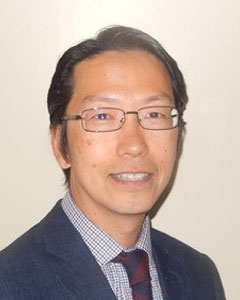
Department of Biochemistry & Molecular Biology
The Department of Biochemistry and Molecular Biology is dedicated to the education of medical and graduate students in biochemistry, molecular biology and nutrition. Researchers in our highly interactive department utilize cutting-edge techniques to discover the molecular basis of disease, including research focused on cancer, infectious disease and aging.
The department consists of 12 faculty, including 2 full-time educators and 10 independent laboratory heads, with externally funded programs. Our outstanding faculty and their exceptional teams of research scientists, postdoctoral scholars, graduate students and undergraduate researchers are key to our success. The collaborative nature of the department and the wide array of scientific approaches, from structural biology and biophysical methods, to cell biology and animal studies, contribute to the exciting research environment.
Our research-intensive graduate programs offer high quality mentored research experiences. These train our students to be successful scientists and independent thinkers, prepared for a variety of careers. Students from our programs hold careers in a range of scientific areas including academic and industry research, teaching roles, government positions and science writing and policy.
Research at the Department of Biochemistry & Molecular Biology
Our major disease focus has been on cancer. Cancer is a multifaceted disease and basic biochemical/molecular research on a broad range of cellular processes has been extremely powerful in understanding cancer biology—from transformation, to metastasis, to response, to treatment. Cancer biology is a "big tent" under which many disparate areas of inquiry can be united and focused.
Meet Our Faculty

Meet Patrick Loll, PhD
Patrick Loll, PhD, is an experienced protein biochemist, structural biologist and protein biophysicist. His group has experience with a wide range of biochemical and biophysical techniques. Read more.

Meet Ridhdhi Desai, PhD
The Department of Biochemistry & Molecular Biology is excited to welcome Ridhdhi Desai, PhD as faculty at Drexel University College of Medicine. Prior to joining Drexel, Dr. Desai was a research fellow at Joslin Diabetes Center and postdoctoral fellow at Beth Israel Deaconess Medical Center at Harvard Medical School, where she focused on investigating the mechanisms underlying initiation and progression of precursor lesions in pancreatic cancer. Read more.

Meet Eishi Noguchi, PhD
Dr. Eishi Noguchi is a professor in the Department of Biochemistry & Molecular Biology at Drexel University College of Medicine. He is the director of the Molecular & Cell Biology & Genetics graduate program. Read more.
Upcoming Events
There are currently no upcoming events.
News & Announcements

2025 Julian Marsh Faculty Scholar Award
Faculty Award
Congratulations to Dr. Christian Sell on being awarded the 2025 Julian Marsh Faculty Scholar Award. This prestigious award is presented to a faculty member at the rank of professor who has demonstrated excellence in clinical or basic scientific research.
American Institute of Physics
Congratulations to Dr. Pat Loll who has been appointed to the Board of Directors of the American Institute of Physics. Since 1931, AIP has engaged in research and analysis to empower positive change in the physical sciences.
The annual Golden Apple Awards recognize outstanding service, teaching and mentoring by Drexel University College of Medicine faculty and professional staff. The honorees are nominated by each class of medical students, who vote to determine the award winners. Read more.
2025 Edith Mitchell Mentoring Award
Mauricio Reginato, PhD, professor and chair, Department of Biochemistry and Molecular Biology, received the 2025 Edith Mitchell Mentoring Award from the Sidney Kimmel Comprehensive Cancer Center Consortium. The award is given out for exceptional mentoring of junior faculty and trainees across the consortium.
Todd Strochlic, VMD, PhD, has been appointed as assistant dean of curricular integration, Drexel University College of Medicine. He will oversee the complex management of the medical education curriculum with a focus on Year 2 and will play a key role in ensuring alignment and integration across the Philadelphia and West Reading campuses. Read more.
Researchers from Drexel’s College of Medicine have identified new drugs that show early success in shrinking breast cancer tumors that have metastasized in the brain. The discovery marks the first time that targeting a key metabolic enzyme in cancer cells in the brain has shrunk tumors in a mouse model. Read more.
The annual Golden Apple Awards recognize outstanding service, teaching and mentoring by Drexel University College of Medicine faculty and professional staff. The honorees are nominated by each class of medical students who vote to determine the award winners. Read more.
In the Media
March 5, 2025: Christian Sell, PhD, professor in the Department of Biochemistry & Molecular Biology, was interviewed by Hone about how fat influences health over time and its impact on aging and longevity.
July 22, 2024: Research from Mauricio Reginato, PhD, a professor and chair, and assistant professor Alexej Dick, PhD, both in the College of Medicine, and colleagues, have identified new molecules that show early success in shrinking breast cancer tumors that have metastasized in the brain, an Inside Precision Medicine article reported.
July 12, 2024: Researchers from Drexel’s College of Medicine have identified new drugs that show early success in shrinking breast cancer tumors that have metastasized in the brain. The discovery marks the first time that targeting a key metabolic enzyme in cancer cells in the brain has shrunk tumors in a mouse model. Read more.
February 26, 2020: Christian Sell, PhD, an associate professor in the Department of Biochemistry & Molecular Biology, led research into the use of rapamycin to treat skin aging that was featured in MIT Technology Review's article on “10 Breakthrough Technologies 2020.”
December 11, 2019: Christian Sell, PhD, associate professor in the Department of Biochemistry & Molecular Biology, and colleagues recently published research showing a possible new use for Rapamycin — as a way to slow skin aging. The findings were covered by Medical News Bulletin and Gilmore Health News.
See all College of Medicine faculty in the Media
Quick Links & Resources
Contact Us
Department of Biochemistry and Molecular Biology
245 N. 15th Street, 11102 New College Building, MS #497
Philadelphia, PA 19102
Back to Top